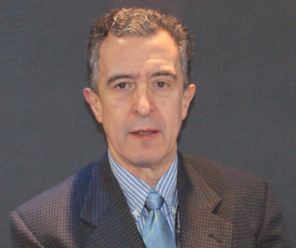Noticias


- Título: Were Interventionalists “Too Quick” to Adopt Renal Denervation? Yes!
- Fecha: 20-01-2015
According to the results of a new survey (Biba MedTech Insights), the majority of interventionalists believe that the European community was “too quick” to start using renal denervation before the efficacy of the procedure was established. One hundred twelve interventionalists were polled across Western Europe about renal denervation to determine how the results of SYMPLICITY-HTN 3 have affected the use of renal denervation in Europe. To the question, 'Do you think the community was too quick to start using renal denervation before its efficacy was really known?' 60% of respondents said yes. Also, the dwindling numbers of renal denervation procedures reflect the rapidly changing mindset about the therapy: Biba MedTech Insights estimated that only 1,237 denervation procedures were performed in Q1 2014 compared with 2,060 in Q4 2013.
In January 2014, Medtronic announced that the SYMPLICITY-HTN 3 study had not met its primary efficacy endpoint, St. Jude Medical announced that they were discontinuing their sham-controlled EnligHTN IV study because of slow patient recruitment, and Covidien revealed they were pulling out of the renal denervation market altogether. The full results of SYMPLICITY-HTN 3 were presented at the ACC annual meeting in March 2014 (and simultaneously published in The New England Journal of Medicine). They showed that Medtronic’s first-generation, catheter-based Symplicity system did not significantly reduce blood pressure in patients with resistant hypertension compared with a sham procedure. The Biba MedTech Insights survey indicates that only 621 procedures were performed in Q2 2014 (after the full results were known) and that this figure dropped to 336 procedures by Q3 2014.
At the same time, Medtronic has continued to enroll patients in its Global Symplicity registry and claimed in a press statement at the time of the ACC meeting that renal denervation remains a promising opportunity. Furthermore, the Joint UK Societies recently claimed (in a joint consensus statement) that SYMPLICITY HTN-3 should not be used as a “rationale for abandoning” renal denervation as further research was needed, and a panel of experts at the 2014 CIRSE meeting stated that there was “still plenty of life in the field.” That said, it is undeniable that European adoption of renal denervation was indeed too quick and perhaps inappropriate, representing yet another example how the more restrictive and “innovation-hostile” environment in the United States can be protective of consumers' and society’s best interests.
- Fuente: endovascular.es





